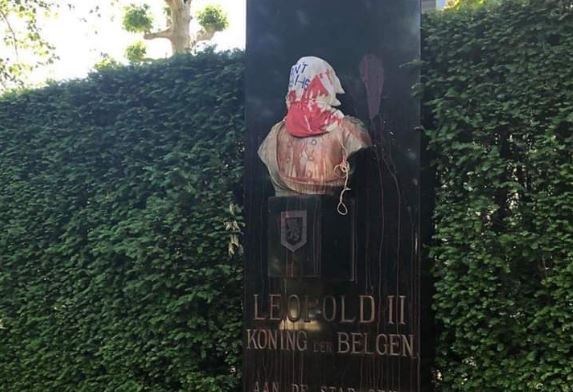A bust of former Belgian King Leopold II will be taken down from display in Ghent, as part of a wider push in the country to face up to the legacy of the colonial ruler.
Currently sitting in Zuidpark, the statue will be officially removed on 30 June - a symbolic date to coincide with the anniversary of Congo's independence in 1960 - the city announced on Thursday.
Under Leopold II’s colonial regime, millions of Congolese people died. Lack of reliable sources have made it difficult to form an accurate estimation, but modern estimates range from 1 million to 15 million. In recent years, a consensus of around 10 million deaths has been reached among historians.
"The criminal actions of Leopold II, among others, do not deserve tribute, on the contrary. To this day, people are hurt and insulted by the insensitive, outdated image of colonisation in our streets and parks," alderman for Equal Opportunities Astrid De Bruycker told VRT.
Related News
- 'I can't breathe': Leopold II statue defaced in Ghent
- 'Crook': Julius Caesar statue vandalized in Flanders
- Leopold II bust pulled from pedestal in Brussels
The last time the statue was amended was in July 2019, when the city added a sign reading: “The city council regrets the many Congolese victims who died during the Free State,” following pressure from activists to address the colonial history.
"The removal of the statues is symbolically important, but shouldn't stand alone. We have to interpret and teach colonisation, not wipe it out," added De Bruycker.
"I Can't Breathe"
The statue - which has been subject to vandalism in the past - recently made headlines when the bust was gagged and covered in red paint symbolising blood and a message referring to the death of George Floyd in the United States.
The face of the bust was covered with a canvas with the message “I can’t breathe,” the last words of George Floyd, the black man who died after a white police officer put his knee on his neck for minutes in the United States last week, resulting in protests against police violence across the world.
Jules Johnston
The Brussels Times

